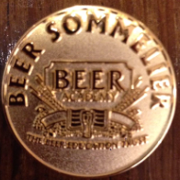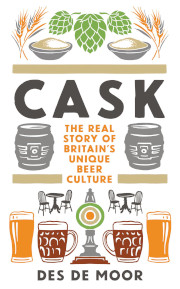ABV: 5%
Origin: Wambeek, Vlaams Brabant, Vlaanderen
Website: www.detroch.be

De Troch Chapeau Lambic
De Troch of Wambeek is one of the lambic breweries you really wish you could think more highly of. Its pedigree is impeccable: it’s a farmhouse brewery founded by Pieter de Troch in 1780 in the lambic heartland of Pajottenland, and remains in family ownership, with links by marriage to other lambic-brewing families like De Neve. Unfortunately for those of us who care about such things, its business model since at least the mid-1980s has been to ape the multinational-owned lambic brands and more, with a range of sweetened lambics in ever more peculiar and exotic fruit flavours under the Chapeau brand, seemingly devised by the same consultants that develop air fresheners for toilets. Their glass design, shown left, demonstrates quite how keen they are to deaden the challenge of a traditional lambic — the chapeau in question appears to have been borrowed from Carmen Miranda.
And yet…if you want a reason to feel better about De Troch, here’s one — at the base of all this is a competent, traditional spontaneously fermented lambic, although it rarely emerges in its own right. I experienced it at the Zythos festival in Sint-Niklaas in 2009, poured from a re-used plastic mineral water bottle at the brewery’s stand, and I’ve since discovered it can be found increasingly on draught at a few speciality pubs in the environs of Brussels. I approach pure, unblended lambic with trepidation and with more of a sense of duty than an anticipation of delight, but I can confirm this is one of the most approachable plain lambics I’ve tasted, and well deserving of wider exposure.
My sample was a hazy gold colour with an orange tinge, and almost flat with a few bubbles by way of a head. A complex sharp typically lambic aroma presented to the nose, with mineral and orange notes and a hint of mature cheese. The palate was tart but relatively soft, with lemon juice and a trace of candy, its forgiving sweetness not overstated but enough to drive the pursing quality to the edges. A long, sappy, chewy and sourish finish had a light marmalade touch. Purists will no doubt advocate the steely acidity of a Cantillon or a Girardin — this was as genuine, but easier, and certainly not deserving of the fruit syrup atrocities it is normally condemned to suffer.
Read more about this beer at ratebeer.com: http://www.ratebeer.com/beer/de-troch-oude-lambik/24075/1/2/





Leave a Reply